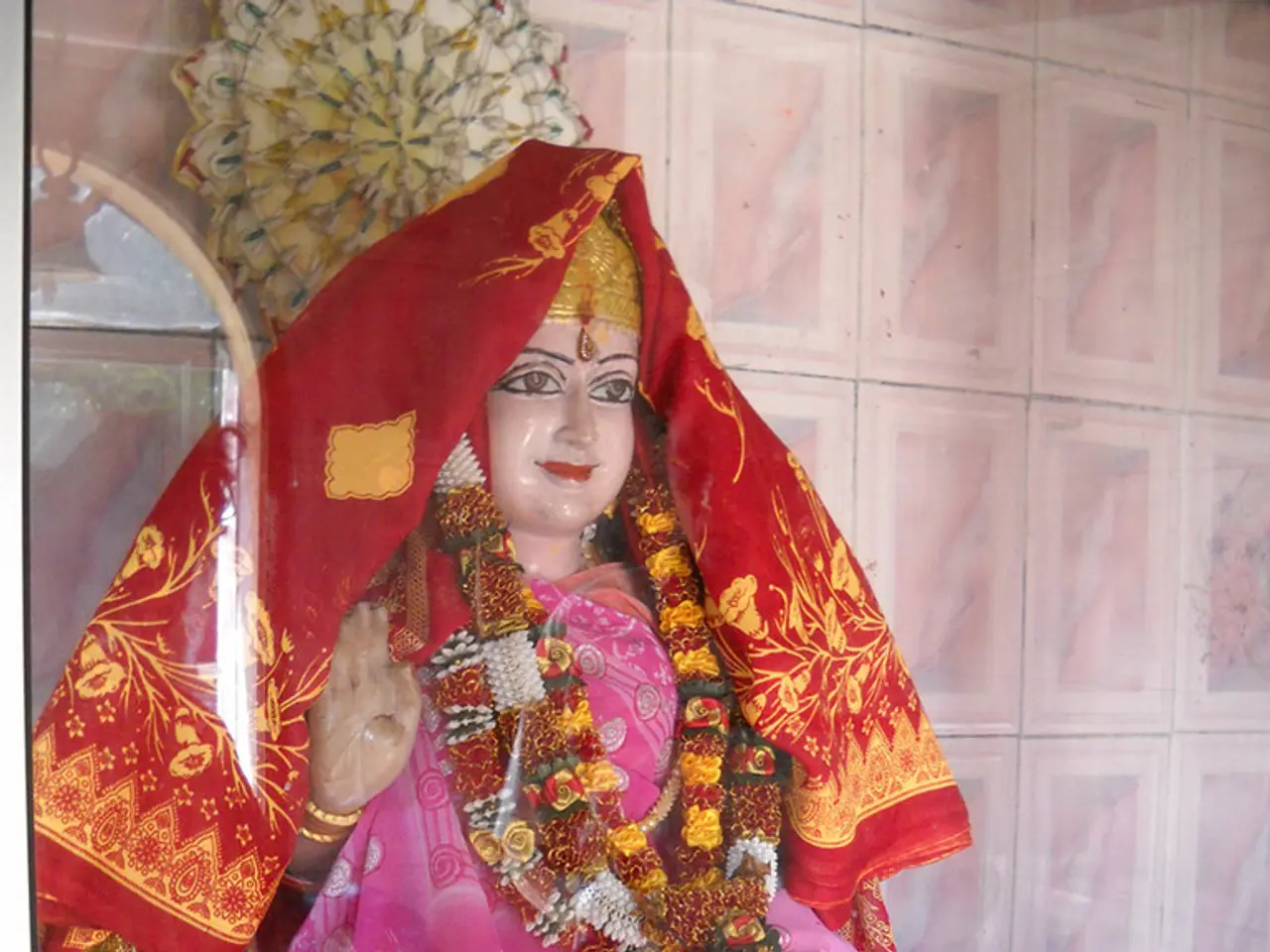Greek deity Dionysus possessed a two-sided nature, embodying both wild and civil aspects.
In the realm of ancient Greek mythology, Dionysus stood out as a unique deity, embodying the vitality of nature and the complexities of human emotions. Primarily the god of wine, fruitfulness, and ecstasy, Dionysus represented the joy and, at times, the danger of intoxication[3].
Born from the union of Zeus and Semele, or Persephone, Dionysus's birth stories are as intricate as the god himself[2]. A tragic turn of events led to Semele's death when she insisted Zeus reveal his true form, but Zeus ensured Dionysus's growth by sewing him into his own thigh[1].
Dionysus's association with wine symbolized more than just celebration. It represented a deeper crossing of boundaries: between life and death, reason and madness, human and beast[1]. This liminality made Dionysus a figure of paradox, a "twice-born god" who transcended normal limits, often depicted as androgynous or embodying contradictions[1][2].
The Dionysia festivals, held in the Theatre of Dionysus in Athens, brought together ritual, wine-fueled ecstasy, and drama—both tragedy and the satyr plays, which used mythological themes mixed with bawdy humor and animalistic elements[3]. This theatrical tradition mirrored Dionysus’s domain as a god who freed individuals from societal norms, allowing exploration of deep emotions, irrationality, and the primal aspects of humanity[3][4].
Throughout history, artists and philosophers have found inspiration in Dionysus’s complex nature, seeing in him a symbol of liberation and transformation, creation and destruction, the interplay of order and chaos, and social inclusion[5].
The Great Dionysia, an ancient dramatic festival held in Athens in honor of Dionysus, is said to be the origin site for tragedy, comedy, and satyric drama[6]. The Theater of Dionysus, built next to an old shrine of his, can still be visited on the southern slopes of the Acropolis in Athens[6].
Myths related to Dionysus often depict wild creatures like satyrs and centaurs, who crave wine but can't always handle it[7]. Dionysus's influence extends beyond the realm of mythology, with his Roman name, Liber Pater, being the name of the most expensive wine in the world[8]. He is also known as the god of viticulture, introducing wine to Greece[8].
One of Dionysus's most famous portrayals in literature is Euripides' tragic play, "The Bacchae," in which Pentheus, the king of Thebes, resists Dionysus and is punished[5]. Even Friedrich Nietzsche, in his final months of madness, occasionally signed letters 'Dionysos,' reflecting the enduring allure of this enigmatic god[9].
The message in these myths is clear: Be human, not semi-human, when it comes to drinking. Dionysus embodies the power of wine and theater to bring people together, to inspire creativity, and to challenge societal norms, but also the dangers of excess and the importance of maintaining balance. His myths and symbols continue to captivate and inspire, offering a profound contemplation of human nature and the tensions between rational control and primal forces.
Read also:
- Devastated Loved Ones Recall Oasis Fan Following Fatal Mishap at Wembley Show
- Love, Work, and Friendship Harmonies between Aries Signs
- England's Tremblings: Lukashenko References English as "Native People"
- Critique on Gender Issues: Deniz Yücel draws a parallel between Minister of Culture and former East Germany's chief ideologist Kurt Hager






